Our Training Navigator (TN) Team below are faculty members within the Fred Hutchinson/University of Washington/Seattle Children’s Cancer Consortium. Students and junior investigators are invited to be matched to a mentor below in the grant writing process and as well as to discuss other career development components. TN's will support trainees by providing robust and comprehensive support for the career development of URM trainees through 1:1 support.
Interested in being matched with one of our Training Navigators? Please email Office of Faculty Affairs and Diversity, ofad@fredhutch.org
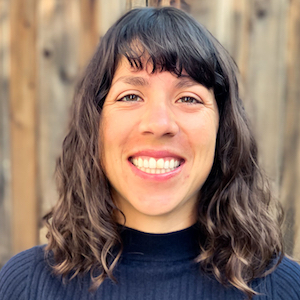
Claudia Vasquez, PhD
The Vasquez lab uses the developing fruit fly renal system as an in vivo model of EMT and MET. Our goal is to identify the molecular mechanisms that control these transitions which are inherent to cancer progression. I am grateful to the mentors I’ve had during my academic journey that have not only championed me but also convinced me that I could both cut it and belonged in I belonged in biomedical research. I am committed paying my experience forward and ensuring the young scientists from diverse backgrounds feel championed and supported.
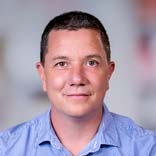
James Alvarez, PhD
I am interested in deciphering mechanisms of tumor progression – especially metastatic recurrence, which is responsible for majority of deaths in epithelial cancers. I have been fortunate to have a number of outstanding mentors whose support has been invaluable in my research career. I have a strong interest in repaying this support by providing guidance and mentorship to early-career scientists from diverse backgrounds.
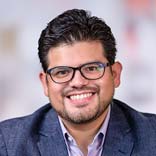
Daniel Blanco-Melo, PhD
Our lab studies the biological mechanisms that animal hosts deploy to combat viral infections and how these strategies have been shaped by the constant struggle with past and modern viruses. Born and raised in Mexico, I have experienced diverse mentorship, management, and leadership styles in distinct cultures. Also, I have first-hand experience of the many challenges that URM trainees face that could impact their performance and mental well-being. Overall, I will strive to become a role model for young, URM scientists, mentoring and promoting individuals from diverse backgrounds to advance their career in science and break systemic barriers.
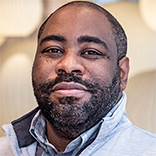
Myron Evans, PhD
My lab’s research focuses on understanding the mechanisms underlying both normal brain development and tumor initiation/progression in pediatric central nervous tumors. A lack of representation has been a challenge for me in pursuing academia as a career, but a few good mentors along the way have gotten me to where I am. I endeavor to pay this mentorship back and become a role model for other URM trainees as they pursue their academic goals.
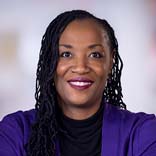
Vida Henderson, PhD, PharmD
I’m a behavioral scientist whose research is focused on improving factors that impact equitable access to and utilization of health services along the cancer continuum among underserved communities. I have specific training and expertise in cancer disparities, qualitative methods, health communication research, community-engaged research and quality improvement programs in community clinics. I’ve had great mentors who have totally impacted my career trajectory and have taught me not only how to properly conduct research and write grants and papers, but have also opened doors for me, cheered for me, advised me, and valued me.
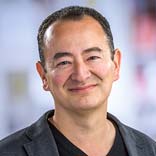
Christoper Li, MD, PhD
I am a cancer epidemiologist and my research focuses on breast and colorectal cancers and spans studies related to cancer prevention, etiology, survivorship, and disparities. My primary mentor when I started my career had an enormous impact on supporting my early successes, and ever since I have valued opportunities to pay this forward through mentoring the next generation of scientists at all levels of their career development (undergrads, graduate students, post-docs, and junior faculty).
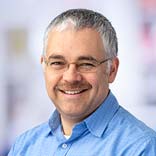
Johnnie José Orozco, MD, PhD
As a 1st generation, oldest son of immigrant parents from Mexico who only gained an elementary school level of education, I can appreciate the nuances in which navigating the route to medical, graduate school, and academic medicine is fraught with unspoken expectations and rules. Now that I've served on medical school admissions and training program selection committees, I am quick to admit that I would very likely NOT be here as an Associate Professor if not for key mentors and champions guiding me along the way. So not only is mentoring the next generation of investigators and providers an imperative, it's also a way to improve representation so that we can truly transform the care and research impact that our communities deserve.
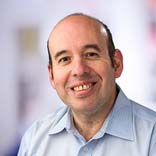
Rafael Santana-Davila, MD
I’m a medical oncologist that treats patients with lung, head and neck cancers. My research has to do with clinical trials of novel therapies for these patients. Most of the clinical trials that I do are sponsored by industry, a minority are investigator-initiated studies that I have with different groups within our research environment, meaning collaborations with the cancer vaccine institute, with colleagues in radiation oncology and with basic scientists at the Hutch.
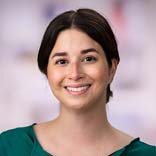
Christina M. Termini, PhD, MM
My research uses basic cell biology and pre-clinical mouse models to understand the fundamental mechanisms that underscore normal and malignant blood cell functions and how the microenvironment influences these processes. Mentorship has strongly impacted my career trajectory by providing me with a source of knowledge, guidance, and confidence as I developed my scientific career. My experiences navigating academia as a scientist from a disadvantaged background have contributed to my desire and commitment to mentoring scientists from similar backgrounds as they pursue their career goals.
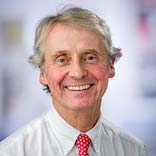
Edus Houston Warren, MD, PhD
I am an oncologist specializing in the treatment of lymphoma and a cancer immunologist who has always been fascinated by the ability of the immune system to recognize and eliminate cancer cells. I am enormously grateful to a small but superb group of mentors who have always held high standards for me and from whom I have learned a great deal. I am passionately dedicated to doing just that for the next generation of biomedical scientists.